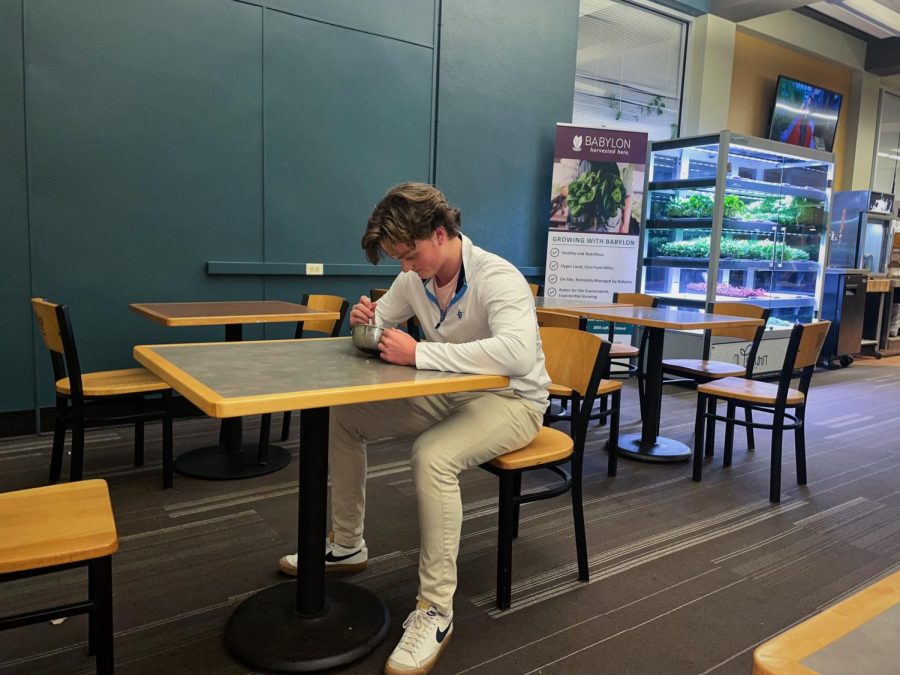Let’s face it, we are still lonely
Post-COVID loneliness affects college life
A student eats alone in the Pit.
February 2, 2023
When COVID-19 restrictions were lifted during my senior year of high school, I thought, as many others did, that the isolation and loneliness I had experienced during the height of the pandemic would recede, and I would automatically reassemble a group of friends just from being around other people. I was sorely disappointed when this was not the case, in no small part due to the fact that I had entirely forgotten how to socialize in a crowded environment like school. The idea that COVID loneliness would disappear as soon as I was around other people was untrue and could have been harmful, particularly in a college setting like at Wake Forest, where everyone has to adjust to a new environment while finding friends. This is made all the more difficult by the fact that improving my social skills was neglected while at home during COVID-19.
In my year and a half of remote school, I only regularly talked to three people outside of my family, aside from occasional texts to vague acquaintances while I was in a Zoom class with them. Even then, the only people I would text during classes were people I knew before the pandemic. Online classes provided no avenue for connecting with new people. I had family members who lived alone and worked remotely who said they spoke to other people maybe once a week.
The isolation that I and many others experienced during this time was not only difficult to experience in the moment, but it also caused an atrophying of social skills. I spent so long away from other people my age that I nearly forgot how to interact with them.
Harvard University’s Making Caring Common Project survey showed that 61% of young people feel lonely frequently or all of the time, and there was a significant increase in loneliness after the start of the pandemic. Many people, myself included, lost friends and the ability to socialize in one fell swoop during COVID. Being surrounded by people again was a harsh wake up call.
The social skills necessary to rebuild friendships had degenerated for many during isolation, and regaining those skills was no easy task. There was no class to take on how to talk to people again, so I just had to muddle through socializing. Oftentimes, it left me feeling just as isolated as during quarantine because it appeared that everyone around me seemed to fall right back into the social rhythms of pre-pandemic life.
Loneliness can be a serious struggle. Acting as though being back around people has automatically fixed loneliness can be very harmful to the people still struggling.
Starting college after the isolation of the pandemic has been an exceptional challenge, as well. An already stressful year of acclimating to dorm life, new classes and a campus full of unfamiliar people is made much more difficult by the fact that our social lives have been through the wringer in the past couple of years.
For people who are still struggling with making friends and socializing, starting college can be an ostracizing and disheartening experience because the pressure to go out and find new friends is intense. In reality, many of us are feeling lost or lonely, both because of the novelty of college and residual effects of the pandemic.
It is important for us to give ourselves and others the grace to struggle. We have lived through some incredibly difficult years, and it is only natural to need some time to recover from them.
Loneliness can be unbelievably challenging, and it can often feel as though someone is the only person experiencing it. However, many people are still lonely after the pandemic, and it is important to acknowledge it. We are all struggling, and it is normal to feel lonely sometimes.
During times of change like this, we need to remember that there is a community around us that we can turn to for support. We are not alone, although we may feel that way. We need to make a more conscious effort to connect with others not only for ourselves but for the people around us who may be facing the same issues of loneliness and isolation as we are.














